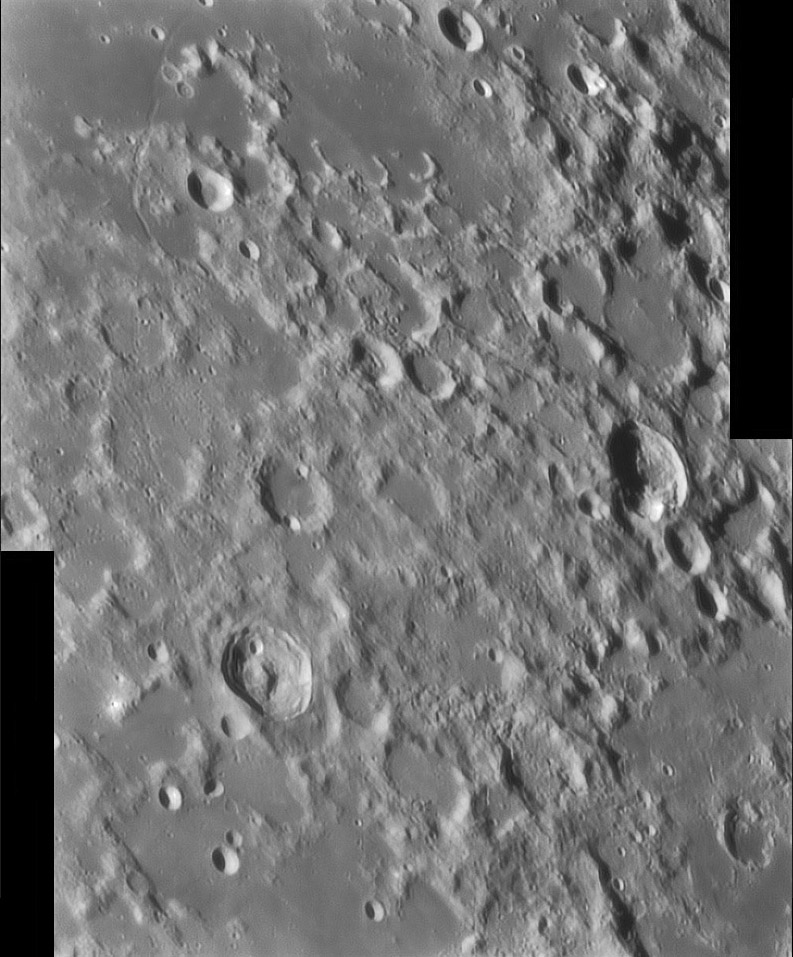
image by Gerardo Sbarufatti, Italy
The Taurus Mountains are probably the least impressive mountains on the Moon. In fact, its surprising that Hevelius named this patch of hills. Many lunar mountain ranges are structural features - the Apennines, Altai and Cordilleras are all impact basin rims. What are the Taurus Mountains? They are the ejecta from the formation of the Serenitatis impact basin, immediately to their west. And underlying that debris is ejecta from the Crisium basin to the east. In fact, the fragment curved scarp at the bottom right is one of the rings of Crisium. These two basins are old and that is why their ejecta - The Taurus Mountains - are just unimpressive rounded mounds. But there are some remnant structures - notice the linear alignments of ridges that point back toward Crisium. The two youngish craters here are Römer (bottom left) and Newcomb (middle right), and the old Römer rille heads northward - this is not the most scenic area of the Moon.
Technical Details:
10 October 2006, 02:11 & 02:13 UT. 8″ SCT Celestron + 2X Barlow + Phillips Vesta Pro camera + 7,500 red filter; 300 best images.
Related Links:
Rükl chart 25
COMMENTS?
Click on this icon File:PostIcon.jpg at the upper right to post a comment.



